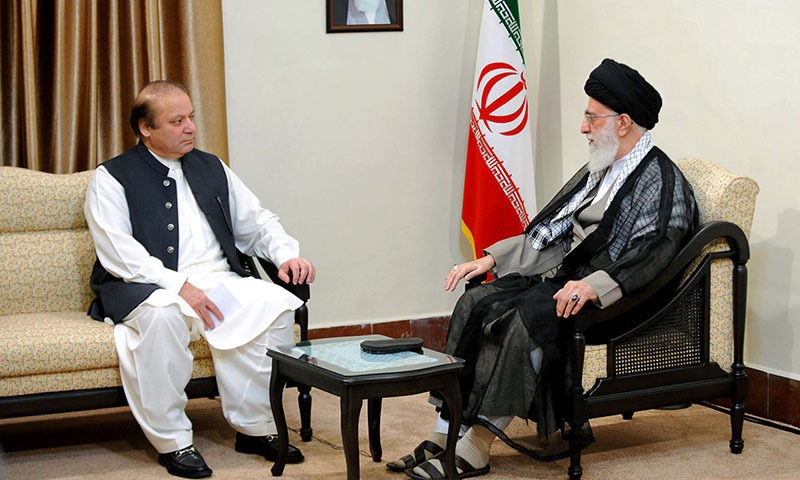‘Pakistan won’t rush to join anti-Iran alliance’

ISLAMABAD: The government has decided against taking sides in the emerging situation in the Middle East – at least for now.
“Pakistan would not rush to join the anti-Iran alliance that is being forged,” a senior government functionary told Dawn in a background interview.
Prime Minister Nawaz Sharif last week visited Saudi Arabia on what the government described as a special invitation of Saudi King Salman Bin Abulaziz.
The invitation for Mr Sharif was part of diplomatic consultations Riyadh started in view of the evolving situation. Other Muslim leaders that the King met over the past few weeks included the presidents of Palestine, Egypt and Turkey, the Jordanian king, emirs of Kuwait and Qatar and the UAE leader.
King Salman’s discussions with Mr Sharif in Riyadh centred on Saudi concerns about Tehran’s expanding influence in the region, the official, who had been briefed about the visit, said, adding that the threat from the self-styled Islamic State also came up in the talks.
Mr Sharif, while agreeing to strengthen relations with Saudi Arabia during the visit, also committed to intensifying security and counter-terrorism cooperation.
The government, however, after evaluating the pros and cons, the official claimed, decided on staying neutral and playing the “role of a unifier” in Ummah.
“We cannot afford to involve ourselves in the disputes among the Muslim countries,” he explained.
While it remains to be seen how Pakistan government acts in the coming days, some of the decisions taken so far indicate that it is not getting itself involved in the Middle East.
The official disclosed that Pakistan had decided not to spare any troops for Saudi Arabia.
Pakistan currently has a few military trainers and advisers in Saudi Arabia. There would not be any major increase in those numbers despite Saudi leadership’s intense desire for getting additional deployments, especially for guarding the border with Yemen.
Pakistan has got a fair reason for its decision as its troops are overstretched because of the domestic security situation.
Secondly, the official said the idea of relocating the mission in Yemen from Sana’a to Aden has also been dropped.
“This relocation thing was discussed because everyone (other missions) was moving from there, but we have now decided to remain in Sana’a,” he said.
The decisions were not easy for Islamabad, particularly because of ‘the special nature of the relationship with Riyadh’, a large number of Pakistanis working in the kingdom and other economic interests.
Published in Dawn March 15th , 2015
On a mobile phone? Get the Dawn Mobile App: Apple Store | Google Play















































